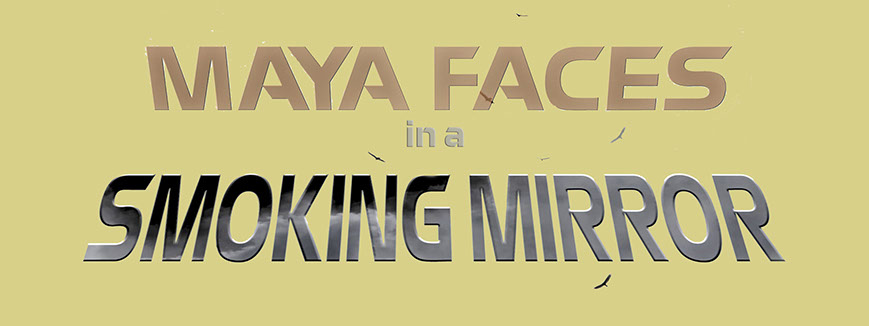A feature length documentary about the struggles of young Mayas to preserve identity and resist, faced with the voracious commodification of the earth .
Bill Jungels and Christine Eber © 2017
Available to all on DVD, Blu-ray and streaming on Vimeo,
and to universities as embeddable files for local networks.
Buy or rent on Purchase Page or Institutional Page
NOTICE: All DVD, Blu-ray and local network licensing sales are suspended for the length of the corona virus health crisis. Maya Faces in a Smoking Mirror will no longer be available for pay per view on Vimeo after March 29, 2020
It can now be streamed for free on You Tube.
Stay well
David fell into the usual traps while working in far off Cancún,
but returned to his family, raised his corn to feed them
and became a catechist working with children.
Zenaida was pressured to marry young and leave her
educational dreams. Now she is a leader in her
weaving cooperative.
Damián grew up between two worlds but has chosen his Tsotsil
identity and become the first rock musician in that
language
Kixtup His parents fled the massacres in Guatemala and in
Mexico they were told to abandon their Chuj Maya
traditions. He works to recover them through his studies
and contacts with the older generation.
Norma Her parents brought her up speaking only Spanish.
Inspired by the 1994 uprising and by her work with
children selling crafts in San Cristobal streets she has
learned Tsotsil and now speaks with her grandmother.
Rufino One of the "Other Dreamers" he had to return to Mexico
to go to college after growing up in the U.S. and found
life in his Tsotsil community hard to adjust to.
Claudia At a very early age she made a mistake in choosing a
husband. Now she is firm in her commitment to bring
up her child in a society that doesn't always understand
women in her position, and she is active in resistance.
Antun Having grown up in a Tseltal Maya community,
through his art he tries to re-imagine the
unfragmented Maya world view.
The fight against building a "Rural City" in Chenalhó
Acting as a frame around their telling of their stories and an example of the "smoke" of world commodification that attempts to erase their cultural identities is the story of the struggle against building a "Rural City" in the municipality of Chenalhó, where some of them live. These segments include interviews with some of the key actors in that successful struggle.
view an extended mini documentary about this struggle with material not included in the documentary.

Coming Soon to this Web Page
• Part 2 of Notes and Resources (September 2018). • more video clips from the documentary or related to it. • bios of the filmmakers.
• announcements of festival showings and other showings



